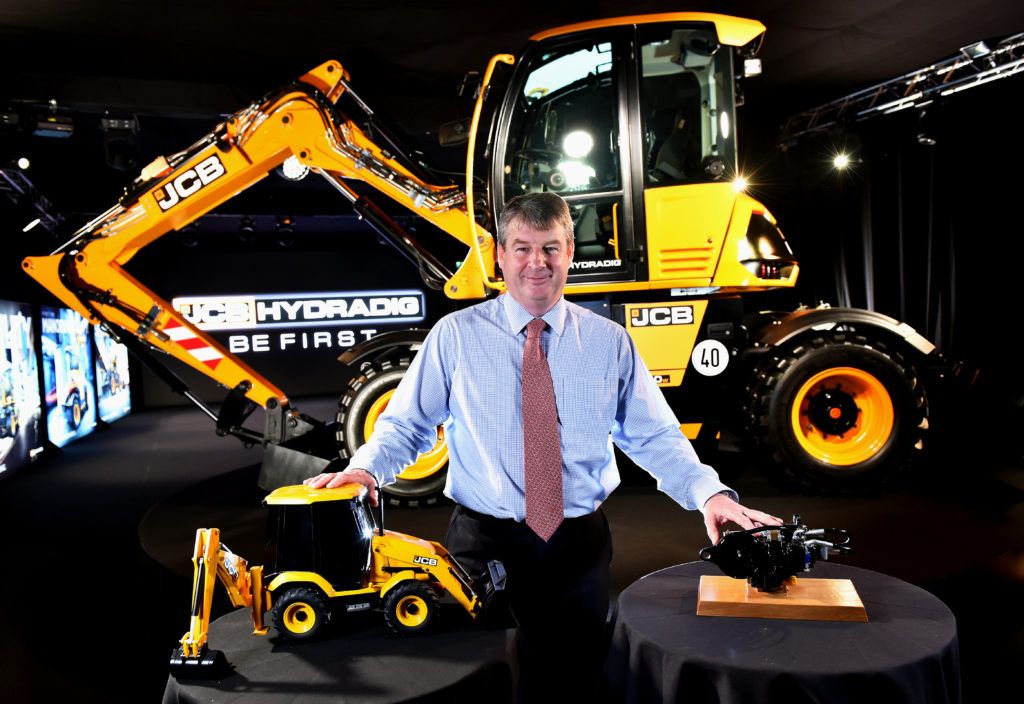Julien Waechter, vice-president research and development with Manitou Group, took time out to talk exclusively with iVT about his company’s view on biofuels, hydrogen and electrification
**
Q: What is Manitou‘s view of alternative fuels – for which vehicles/applications do they make most sense and how much interest is there from customers? What percentage of your current engine range can run on alternative fuel (and what type of fuel)?
A: In the current climatic context, alternative fuels are an answer in order to prevent greenhouse effect. They give us an opportunity to minimise the CO2 emissions between well and wheels, they make sense with current Manitou fitted with internal combustion engines. Each new Manitou can run with biofuel (at least B7) and the main part of the range can run with higher levels of biofuel (up to B30) or with synthetic fuel (HVO).
Q: Precisely what alternative fuels are you working with and what are some of the pros and cons of each fuel – in terms of efficiency, maintenance, performance, ease of manufacture, life cycle, etc? Any key advantages or benefits? Does Manitou Group have a preference for a particular alternative fuel?
A: We choose our offer in close contact with our engine suppliers and we concentrated our developments on biofuel FAME (Fatty Acid Methyl Ester) and synthetic fuels HVO (Hydrotreated Vegetable Oils). Both of them come from vegetable (or animal) oil ; their transformation process makes differences. In both cases, when they are burned they reject the C02 recently captured by the plant from which they come, this is what makes them carbon neutral. FAME are mixed with conventional fuel in order to make them compatible with engine components like injector as an example. FAME is easily available at competitive prices. Some adaptations, integrated by Manitou, are necessary especially for the rubber components. HVO is a synthetic fuel with close characteristics to conventional fuel. HVO could be used alone, which makes it a fossil free fuel. From a climatic point of view HVO is the best solution to run with conventional Diesel engine compatible with previous fossil fuels without drastic and costly evolution. Both, FAME and HVO, are neutral from a climatic point of view . In both cases, a Diesel engine is used with a combustion and its associated pollutants like fossil fuels, they are not zero emission solutions. With those alternative fuels we prevent the greenhouse effect.
Q: Is it a case of designing one solution that is compatible with all alternative fuels (‘fuel agnostic’) – or is it better to optimise performance based on a particular alternative fuel solution?
A: Two alternatives have been selected in order to concentrate our R&D efforts on it and offer to our customers robust and well known solutions. Two alternatives make opportunities for our users to choose depending on local availability, local constraints and commonality with other machines in its fleet. Optimisations have been done with best in class and adapted solutions. The period is exciting from an energy point of view, Manitou Group R&D is on alert to detect and offer new solutions as far as they are relevant for the user with positive impacts on our planet.
Q: What is Manitou‘s view of hydrogen and how much of the market do you foresee hydrogen accounting for, in the future? And how much for alternative fuels as a whole? What needs to happen first before hydrogen can truly take off?
A: At Manitou we are also very enthusiastic about hydrogen. In 2021, we decided to launch a major project to evaluate hydrogen solutions for our machines. We are in the process of equipping ourselves with dedicated test resources at our R&D test Center in order to assess the relevance of hydrogen solutions on different ranges of machines and applications, including a supply station and several prototypes. It is still too early today to say what the market share of these solutions will be, but we have already identified relevant use cases. What clearly appears today as a challenge to succeed in developing these solutions is, on the one hand, access to the production of truly carbon-free green hydrogen, and on the other hand, the establishment of a supply chain dedicated to hydrogen for temporary applications (construction sites, events, mobile industry, etc.).
Q: Can you describe a particular Manitou engine or case study that can run on alternative fuel – key performance stats, any customer details, typical applications of vehicle, etc. Will you present anything relevant to alternative fuels (inc hydrogen) at Bauma?
We’ll present a lot of electric vehicles (MEWP, fixed and rotative telehandlers) at Bauma. EVs are definitely our focus there.





